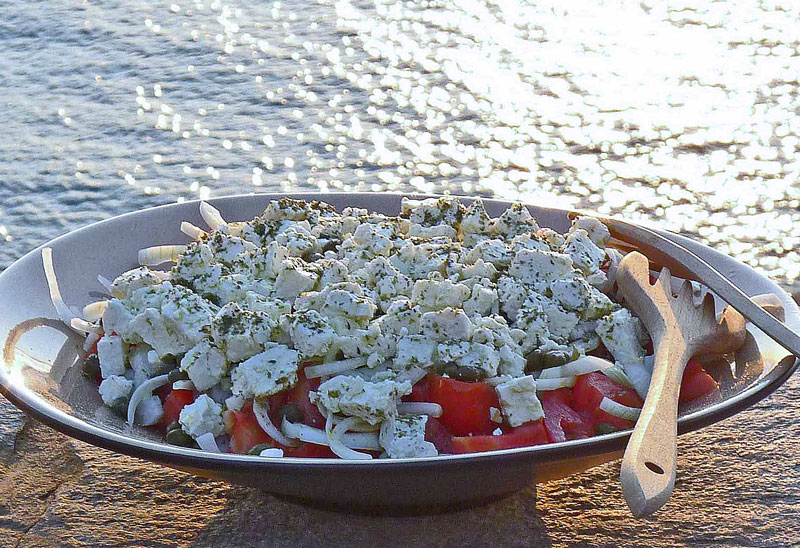This is one of the easiest spoon sweets to make. Traditionally in Greece every July all cooks used to make Vissino (sour cherry) preserves to serve with ice cream or yogurt throughout the year.


Adapted from my book The Foods of the Greek Islands.
The cornerstone of Greek sweets are the preserves made with the fruits of every season.
Each home has several different jars of fruit in the pantry, and guests are offered a teaspoon with a glass of water as a welcome to the house.
I know that fresh sour cherries are not the easiest fruit for most people to get, and their season is so short, so I suggest you make the preserves with perokerasa (Rainier cherries) instead.
Unfortunately, the true color of the Rainier cherries preserves is a quite unattractive murky yellow, so you are better off adding a few drops of red food coloring. Instead, I prefer to boil a red beet with the cherries, a trick I learned from Tunisian cooks.
Makes 3 cups (more…)











